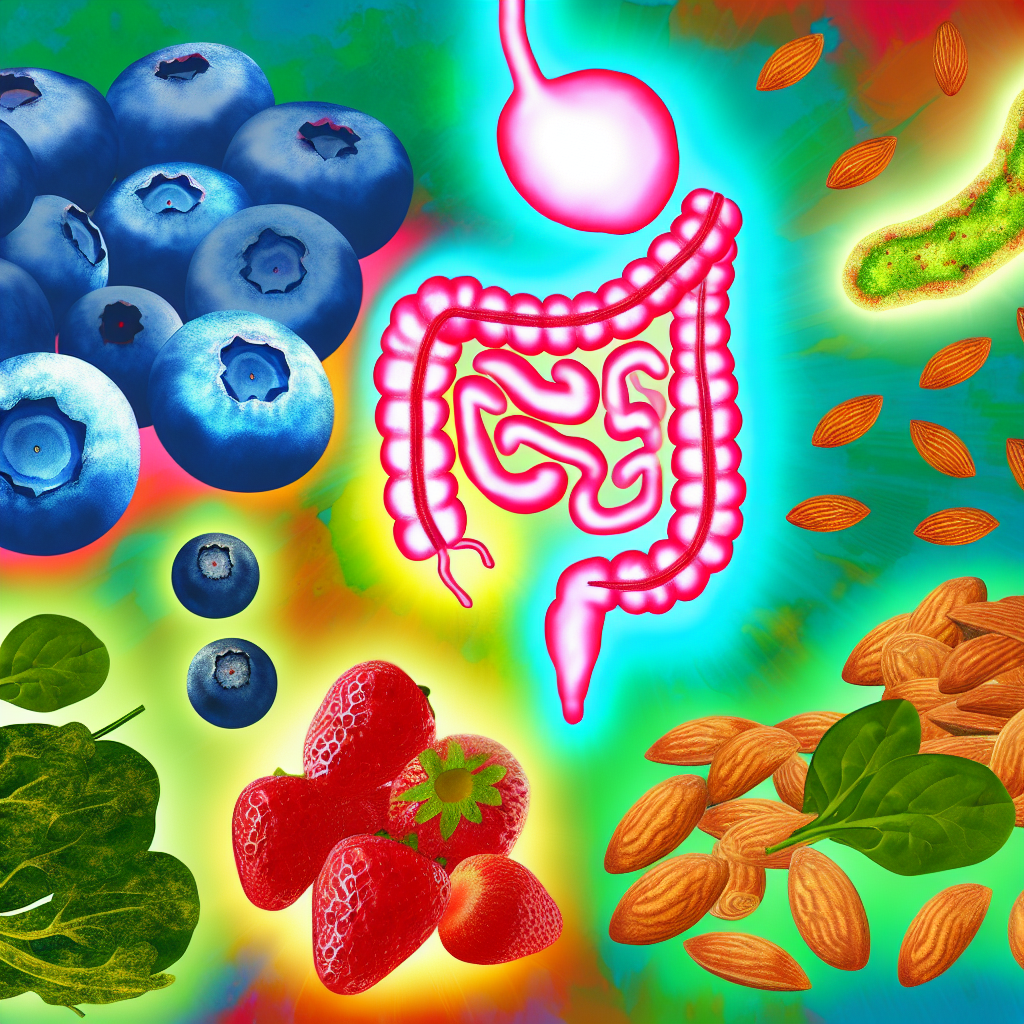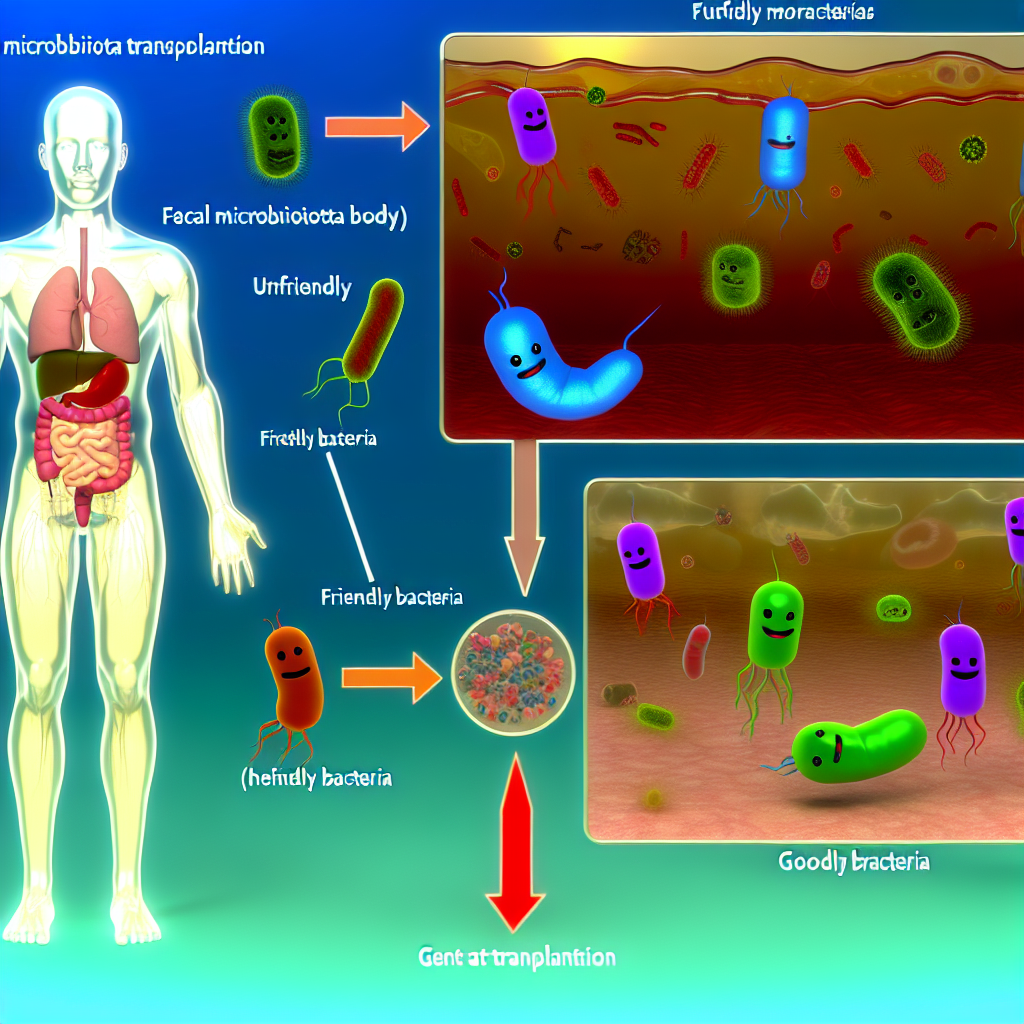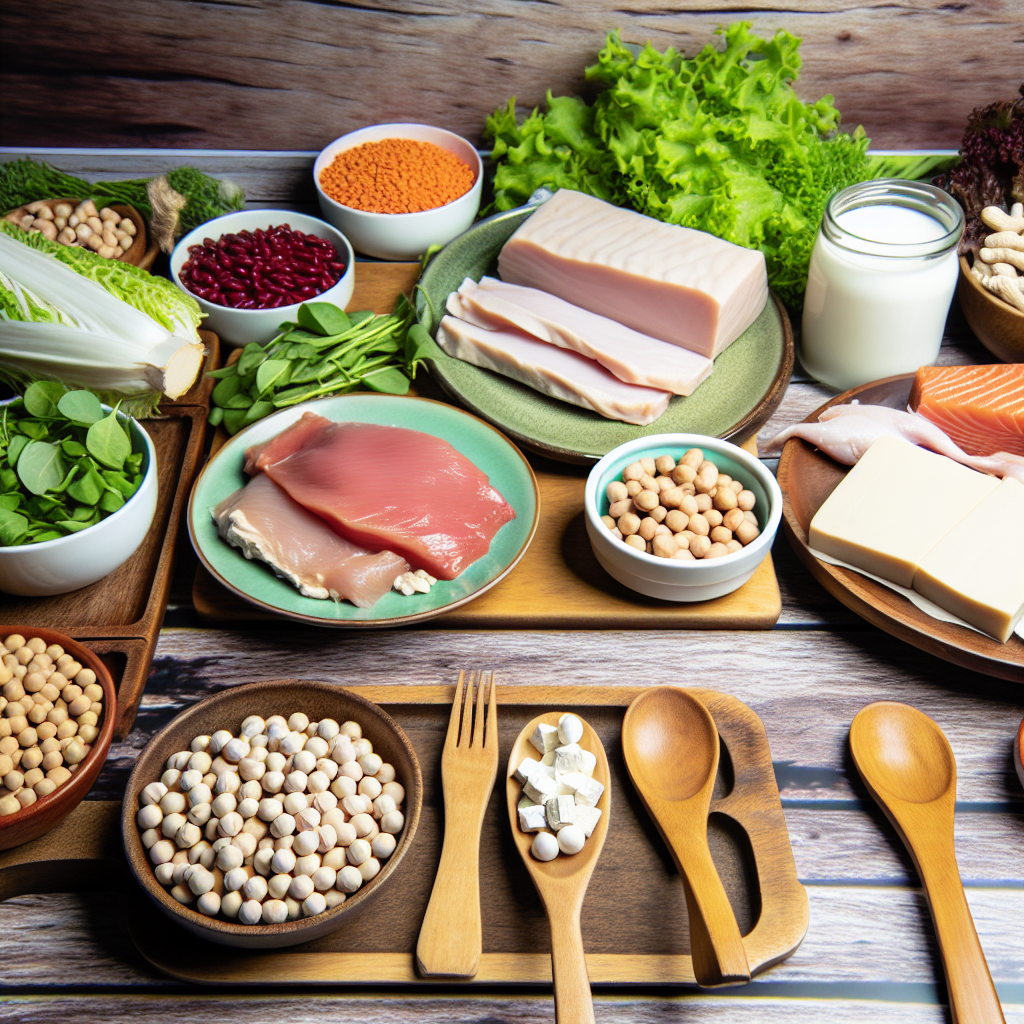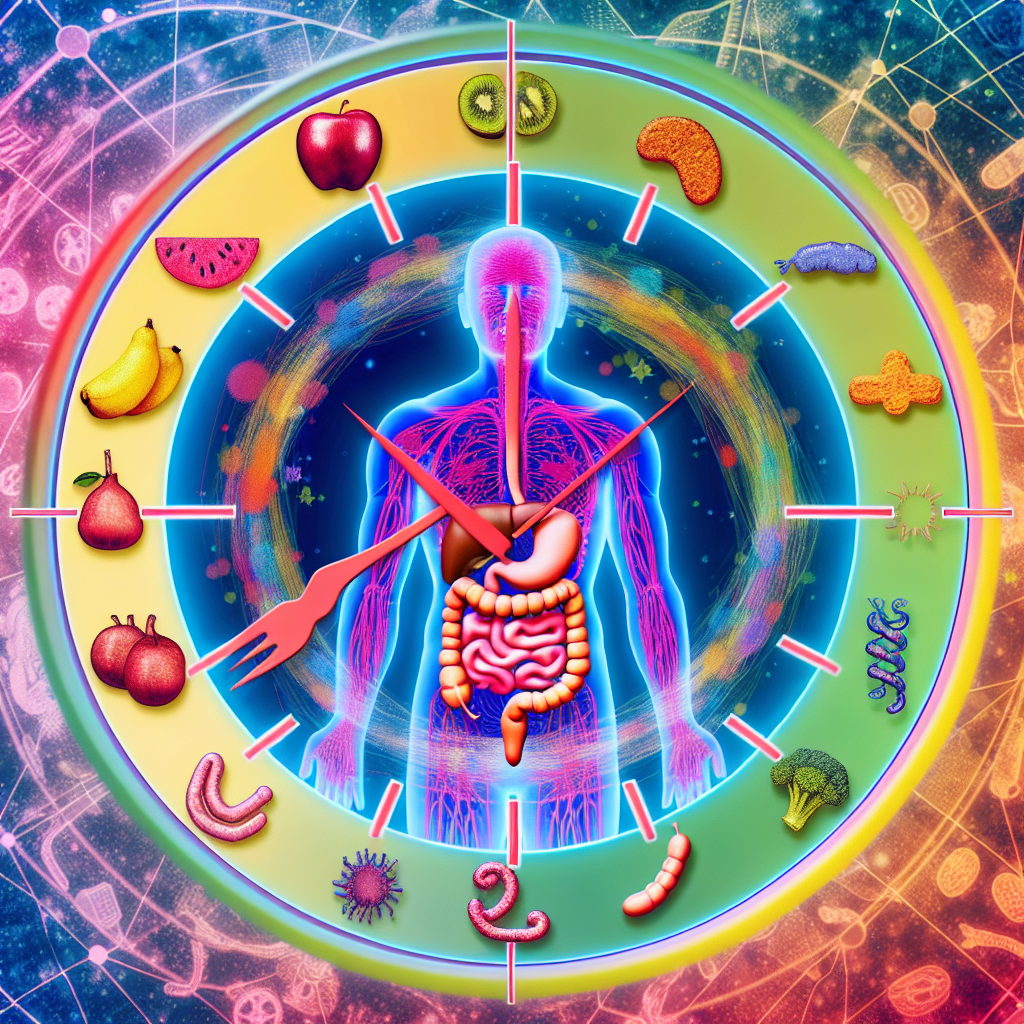Here is the updated blog post with cleaner formatting, expanded content, and improved styling:
Polyphenol-Rich Superfoods That Feed Good Gut Bacteria
Introduction
Gut health has become a major focus in recent years, as scientific research continues to uncover the vital link between the gut microbiome and overall health. The gut is home to trillions of microorganisms, including both beneficial and potentially harmful bacteria, viruses, fungi, and other microbes. Maintaining a balanced and diverse gut microbiome is crucial for supporting digestion, immune function, mood regulation, and disease prevention.
One of the most effective and natural ways to promote a healthy gut is through dietary choices that nourish and support microbial diversity. Polyphenols, naturally occurring compounds found in plants, have emerged as particularly promising gut-supportive nutrients. These antioxidant-rich compounds act as prebiotics, feeding the beneficial bacteria in the gut and helping to maintain a balanced microbiome.
In this article, we will explore the science behind polyphenols and gut health, examine key studies supporting their efficacy, and highlight some of the most polyphenol-rich superfoods that should be on your grocery list to feed your good gut bacteria and support overall wellness.
The Gut-Microbiome Connection: What the Science Says About Polyphenols
A growing body of research underscores the therapeutic potential of polyphenols in modulating gut microbiota. A landmark study published in the journal Nutrients (2019) explored how dietary polyphenols interact with the gut microbiota and how this relationship can lead to protective effects against metabolic disorders, inflammation, and gastrointestinal diseases. The study emphasized that key polyphenol metabolites, produced when gut bacteria break down these compounds, orchestrate significant biological activities that support gut health and systemic functions.
One of the most widely studied polyphenols is flavonoids, found abundantly in berries, tea, citrus fruits, and cocoa. A 2020 clinical review in Frontiers in Microbiology elaborated on how flavonoids can stimulate the growth of commensal bacteria like Lactobacillus and Bifidobacterium while suppressing pathogens such as Clostridium perfringens. Such modulation of microbial populations can protect the gastrointestinal lining, enhance nutrient absorption, and reduce intestinal inflammation.
Moreover, a study from The American Journal of Clinical Nutrition demonstrated that consuming polyphenol-rich foods, particularly dark chocolate and green tea, increased levels of beneficial short-chain fatty acids (SCFAs) and beneficial bacteria in the gut. These SCFAs play a vital role in maintaining the intestinal barrier and regulating the immune response.
Another intriguing study by the University of Reading found that participants who consumed a high-polyphenol diet for four weeks showed increased populations of specific beneficial bacteria, such as Akkermansia muciniphila, associated with improved metabolic health and reduced obesity markers. These shifts in the microbiota were also correlated with decreased inflammatory markers and improved insulin sensitivity.
From these studies, it is evident that polyphenol-rich foods exert prebiotic-like functions, generating a favorable shift in the gut microbial community. While further research is needed to explore specific mechanisms and long-term impacts, there is a solid foundation supporting the integration of polyphenol-rich foods in dietary regimens aimed at gut health optimization.
Top Polyphenol-Rich Superfoods to Feed Your Gut Microbiome
Incorporating the following polyphenol-rich superfoods into your daily diet can be a game-changer for gut health. These vibrant, flavorful foods not only nourish the beneficial bacteria in your gut but also offer a range of other health benefits, including cardiovascular protection, improved cognitive function, and lower risks of chronic diseases.
- Berries (Blueberries, Strawberries, Raspberries)
Rich in anthocyanins and flavonoids, berries are gut-friendly fruits that actively support microbial diversity. Blueberries, in particular, have been shown to increase Bifidobacterium and Lactobacillus populations, enhancing gut resilience and reducing inflammation. - Green Tea
Loaded with catechins like epigallocatechin gallate (EGCG), green tea encourages the proliferation of probiotics while acting as an antimicrobial against harmful bacteria. Green tea polyphenols also contribute to better digestion and metabolic function. - Dark Chocolate (70% Cocoa or Higher)
Dark chocolate is packed with flavanols, which are converted into anti-inflammatory compounds by gut bacteria. Limited intake can support microbial richness while satisfying cravings healthfully. - Extra Virgin Olive Oil
A staple of the Mediterranean diet, olive oil is abundant in hydroxytyrosol and oleuropein, polyphenols that decrease oxidative stress in the gut and promote microbiota balance. - Red Grapes and Red Wine (in moderation)
Rich in resveratrol, red grapes and moderate wine intake can benefit gut flora, enhancing microbial diversity and improving intestinal barrier function. - Turmeric
Curcumin – turmeric’s active polyphenol – has antibacterial and anti-inflammatory properties that nurture a balanced microbial environment. - Broccoli and Cruciferous Vegetables
These vegetables contain a variety of polyphenols including kaempferol and quercetin, known to reduce gut inflammation and stimulate beneficial bacteria growth. - Apples
Especially rich in the polyphenol phloretin, apples also offer plenty of soluble fiber, which works synergistically to feed gut flora and maintain regularity.
Conclusion: Small Dietary Shifts with Big Gut Rewards
Feeding your good gut bacteria doesn’t require drastic dietary overhauls—small, consistent inclusions of polyphenol-rich superfoods can have a profound, positive impact on your gut microbiota. These vibrant foods do more than just satisfy taste buds; they serve as vital nourishment for the beneficial bacteria that uphold your digestive and systemic health.
As science continues to unveil the intricate connections between diet and the microbiome, leveraging polyphenol-rich nutrition offers a natural, preventative strategy for fostering gut resilience and enhancing overall wellness. For those seeking herbal and natural approaches to digestive health, polyphenols present a credible, accessible, and evidence-backed path to improved microbiome diversity and function.
References
- Tresserra-Rimbau A, Lamuela-Raventós RM, Moreno JJ. Polyphenols, gut microbiota, and health. Nutrients. 2019 Jan 11;11(1):61. Read Study
- Ozdal T, Sela DA, Xiao J, et al. The reciprocal interactions between polyphenols and gut microbiota and effects on bioaccessibility. Nutrients. 2016;8(2):78. Read Study
- Cardona F, Andrés-Lacueva C, Tulipani S, et al. Benefits of polyphenols on gut microbiota and implications in human health. J Nutr Biochem. 2013 Aug;24(8):1415-1422. Read Study
- Etxeberria U, Arias N, Boqué N, et al. Reshaping fecal gut microbiota composition by the intake of trans-resveratrol and quercetin in high-fat sucrose diet-fed rats. J Nutr Biochem. 2015 Jan;26(1):651–660. Read Study
Summary: Polyphenols, naturally occurring compounds found in plants, have emerged as promising gut-supportive nutrients. These antioxidant-rich compounds act as prebiotics, feeding the beneficial bacteria in the gut and helping to maintain a balanced microbiome. Incorporating polyphenol-rich superfoods like berries, green tea, dark chocolate, olive oil, and turmeric into your daily diet can have a profound, positive impact on your gut health and overall wellness.

Dominic E. is a passionate filmmaker navigating the exciting intersection of art and science. By day, he delves into the complexities of the human body as a full-time medical writer, meticulously translating intricate medical concepts into accessible and engaging narratives. By night, he explores the boundless realm of cinematic storytelling, crafting narratives that evoke emotion and challenge perspectives.
Film Student and Full-time Medical Writer for ContentVendor.com



